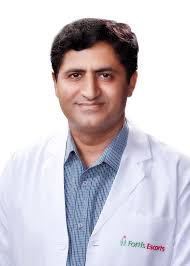Thyroid Surgery - Know Why It Is Suggested!
The thyroid is a small gland located at the base of the neck. This is responsible for the production of hormones that help regulate metabolism. The thyroid is susceptible to a number of disorders including hyperthyroidism and cancer. In such cases, a thyroidectomy may be recommended. This can be categorized as a complete thyroidectomy where the entire thyroid gland is removed or a partial thyroidectomy where only a part of the thyroid is removed.
Thyroidectomy for removal of tumours
This is one of the most common reasons for a thyroidectomy. In many cases, the modules may be benign but removing the thyroid gland at an early stage ensures that these nodules do not grow large enough to obstruct the air passage in the throat. They could also cause an overproduction of thyroid hormones that in turn affects metabolism. If left untreated, these nodules may also turn cancerous. In the case of cancerous tumours, the doctor may also remove some of the surrounding tissues.
Thyroidectomy for hyperthyroidism
Hyperthyroidism is a condition where the thyroid gland produces more than normal amounts of the thyroid hormone. The result of this could be an increased heart rate, tremors in the hands, excessive sweating and weight loss. In most cases, hyperthyroidism is a result of an autoimmune condition called Graves disease. This can be treated by a partial or complete removal of the thyroid gland.
Thyroidectomy for thyroid goitres
The thyroid gland is also susceptible to enlargement. This is known as a thyroid goitre. Goitres can block the throat passageway and cause trouble breathing and eating food. It can also affect the person’s speech. Hence, they must be removed. Thus a thyroidectomy often recommended in such cases.
How is a thyroidectomy performed?
A thyroidectomy is a relatively safe procedure. This surgery is performed under general anaesthesia and can take up to a few hours. The patient may need to be hospitalized for a few days post-surgery. The surgery can be performed endoscopically, conventionally with an incision made in the centre of the neck or with a robotic approach through incisions made in the chest or armpit. This helps avoid the visible scar on the neck. In case of a complete thyroidectomy, the patient will need hormone replacement drugs after the surgery. These drugs perform the same functions as the hormones that would have been produced by the thyroid gland. This is not needed in the case of a partial thyroidectomy.



+1.svg)
